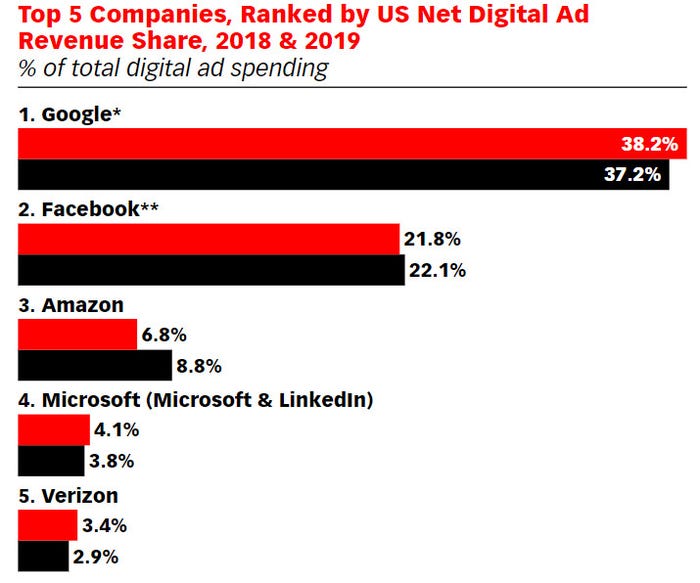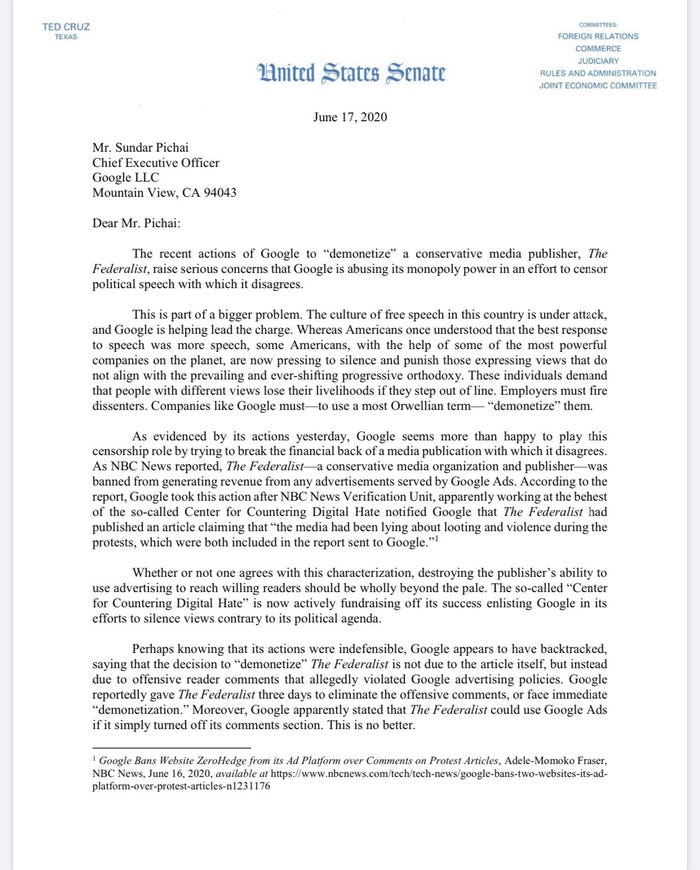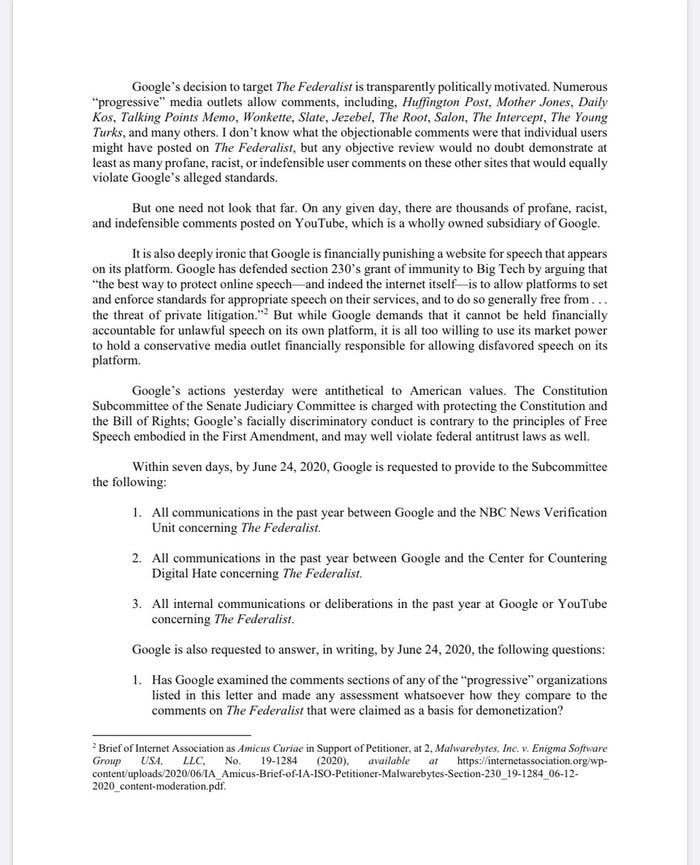Google censors independent comments sections while remaining protected itselfGoogle censors independent comments sections while remaining protected itself
A blatant display of targeted, coordinated censorship has resulted in Google threatening two news sites with demonetization unless they delete specified comments sections.
June 17, 2020

A blatant display of targeted, coordinated censorship has resulted in Google threatening two news sites with demonetization unless they delete specified comments sections.
The news was broken by Comcast-owned NBC, which reported “Google’s ban comes after the company was notified of research from the Center for Countering Digital Hate, a British nonprofit that combats online hate and misinformation.” What it failed to mention was that the person doing the notifying was the very same NBC journalist who wrote the story.
So, before we even get into the details of what The Federalist and Zero Hedge are alleged to have done wrong, we have a clear case of a journalist acting to create an event they can then claim an exclusive on. The ethics of doing such a thing are highly questionable by themselves, but a failure to report on NBC’s crucial role in the story amounts to an outright attempt to deceive its audience.
Having had the CCDH research flagged up to it, Google then apparently contacted the sites in question and confronted them over their comments sections. The original NBC story, which seems to have been heavily edited since publication, including the headline, gave the impression the issue was with certain stories themselves, something Google had subsequently contradicted. The above tweet from the NBC reporter also seems to differ from her original, with the removal of the hashtag #BlackLivesMatter.
Google has subsequently asserted that The Federalist was never demonetized because it took down the offending comments section as soon as it was confronted. In the Twitter thread below, the Google Communications account took time away from its day job of retweeting examples of corporate virtue-signalling to flag up Google’s policies, which presumably permit it to take action against any content it doesn’t like the look of.
While Google can’t be compelled to partner with anyone over its digital ad platform, its dominance of that sector, especially in the US, means there are few alternative ways of generating revenue for sites it chooses to cut off. In essence, thanks to its near monopoly in digital advertising, Google effectively has power of censorship over the entire commercial internet.
This has been the case for some time, resulting in an extensive antitrust investigation being launched in the US last year. If Google wanted to give that investigation extra evidence against it, it’s hard to imagine a better way than through the censorship of content it doesn’t like. On top of that, the company has previously been fined over its advertising dominance by the EU and was already in the crosshairs of US President Trump for its alleged bias against conservative political content.

Which brings us on to the research that brought this censorship about. The Center for Countering Digital Hate says it “seeks to disrupt the architecture of online hate and misinformation,” and makes no mention of any political leaning on its ‘about us’ page. However the fundraising tweet below indicates it supports Black Lives Matter, a political organization, and the CCDH’s Wikipedia page links much of its senior management with leftist activism.
The NBC story soon got the attention of senior US politicians, with Senator Ted Cruz immediately drafting a letter to Google CEO Sundar Pichai. You can see the letter in the Tweet below, and we’ve also published it directly below that. Cruz accuses Google of “abusing its monopoly power in an effort to censor political speech with which it disagrees.”


Cruz goes on to make reference to section 230 of the US Communications Decency Act, which protects internet platforms, as opposed to publishers, from liability for content they host, including user comments. The gall of Google directly punishing two publishers for comments made on their sites, while Google itself is immune from such responsibility seems to have stuck in Cruz’s throat and we can expect him to actively support another Senator’s campaign to remove that protection.
Both of the affected sites have published pieces addressing Google’s actions. The Federalist refers largely to an interview its founder did with Fox News, in which he directed most of his ire at NBC rather than Google. The Zero Hedge piece also focuses on NBC, which is probably motivated in part by outrage at the practice of journalists trying to censor each other, and in part by a desire not to permanently burn bridges with Google.
In summary we are presented with the chilling spectacle of a digital advertising monopolist using that position to censor independent journalistic websites at the behest of a political activist group and in collaboration with another tech giant. On top of that it specifically targeted their comments sections, while its own enjoy legal immunity from any liability. As a result, Google has brought a ton of scrutiny on itself over a relatively trivial matter, something we suspect it must now be regretting.
About the Author
You May Also Like










.png?width=300&auto=webp&quality=80&disable=upscale)


_1.jpg?width=300&auto=webp&quality=80&disable=upscale)